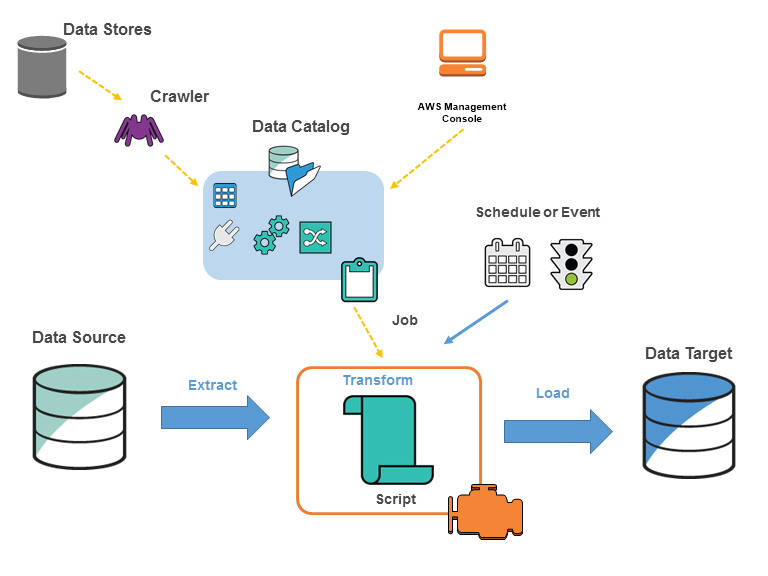AWS (Amazon Web Services) Glue
AWS Glue is a fully managed ETL (extract, transform, and load) service that makes it simple to categorize your data, clean it, enrich it, and move it reliably between various data stores and data streams. AWS Glue is serverless, so there’s no infrastructure to set up or manage.
| AWS Glue consists of a central metadata repository known as the AWS Glue Data Catalog, an ETL engine that automatically generates Python or Scala code, and a flexible scheduler that handles dependency resolution, job monitoring, and retries. |

|
Google Cloud Data Fusion vs AWS Glue
- AWS Glue: A fully managed ETL service that makes it easy for customers to prepare and load their data for analytics.
- Google Cloud Data Fusion: A fully managed, cloud-native data integration service that helps users efficiently build and manage ETL data pipelines.
| Votes between AWS Glue and Google Cloud Data Fusion are given on the right. They are for reference only because it is subjective. |

|